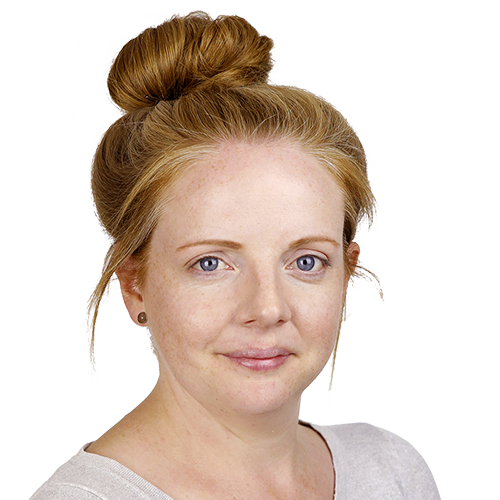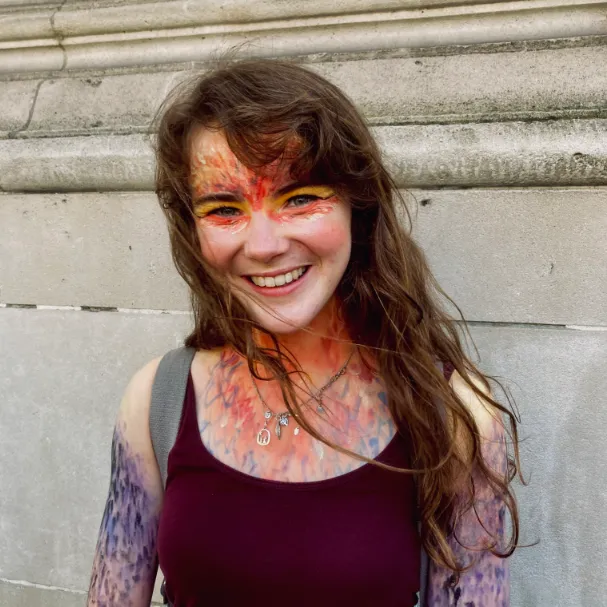
Earlier this year we were invited by Alicia Hayden to support her in the publication of a blog relating her experiences as a young person in birding. The blog relates an incident of abuse that had, and continues to have, a devastating effect on her.
She has not shared with us the name of the person responsible for it and she does not want to pursue any further action. She has told us the individual is no longer associated with BTO in any way.
Although her story is difficult to hear, it raises important issues that need to be heard. We chose to support her to share her experience because we believe it will help us do, and be, better in the future.
This is work by a brave young woman. It is hard for me to read personally, as a woman who has often felt a degree of vulnerability, and professionally, as the CEO of the British Trust for Ornithology. It will be hard for many of you too, even though much of the text is about how engaging with nature can be both uplifting and healing. I want to be absolutely clear, there is no place for any form of abuse within our community. We will not tolerate any abusive behaviour towards the author or indeed any BTO supporters or staff. All allegations of abuse will be acted upon and anyone found perpetrating abuse will no longer have a place with us.
We had already taken steps to strengthen our code of conduct, our safeguarding processes and policies and complaints process and we have increased the visibility of both of these on our website. We are committed to developing our culture, policies and procedures to ensure BTO is truly a place of belonging for all.
Professor Juliet Vickery CEO
Please find information, resources and support at the end of this blog.

On birds
Trigger Warnings: mention of abuse, trauma, and anxiety
Birds saved my life. There’s nothing unusual about that. Increasingly, many people find solace, peace, and hope in birds and the natural world.
What’s more unusual about my situation, is that it was birding that caused my life to need saving in the first place.
Birds. They’re feathered and floating; weightless in the air. They come in a plethora of shapes and sizes; from flightless penguins and the round hairy and almost-blind Brown Kiwi, to the elegant arrow-like Arctic Tern and the bundles of angry fluff which are the pygmy owls.
I have never been that much of a birder, I was more of an all-round nature lover, but seeing my first bird ringing demonstration when I was around 10 opened up a world I’d never seen before. The idea that you could hold these beautiful creatures and learn about their lives by taking a few simple measurements was extraordinary to me, and I was desperate to get involved. At 14, I was allowed to start ringing, and for five years, I never looked back – ringing almost every weekend and working up to 14–15 hour days during the summer. At around 18, I started to become more aware of the issues facing the birding community – namely sexism and an industry which provides the perfect storm for toxicity, control, and abuse – and finally, at 19, an abuse incident meant that I stopped ringing altogether.

And I didn’t just stop ringing; I pulled away from birds in general. These creatures which I’d dedicated a decade to suddenly felt tainted, and the idea of doing anything remotely ornithologically related made me feel ill. I suffered from PTSD over the following months and years, and still do; my dreams ripped into nightmarish shreds and flashbacks clouded my vision and actions most days. A keen wildlife photographer, even photographing birds start to feel complicated – everything intertwined with painful memories and a system which had failed me.
I spent the following year or so focusing on other, more creative, explorations of natural history. Having always aspired to work in the wildlife film industry, I spent more and more time drawing wildlife, pushing myself from working solely in biro, to experimenting with everything and anything I could get my hands on. At the same time, I pushed my writing, played around with film, and in every respect threw myself into creative work – an expression of my feelings and an outlet for my frustration and anger at the world. Ultimately, I felt alone – isolated. PTSD and anxiety feel like shadows which follow me wherever I go – I had been known as the girl who was into birds at university, now, who was I? I felt like I had lost my identity.

Despite being involved with the birding community for a large proportion of my life, I had no idea that the British Trust for Ornithology (BTO) had a Youth community. It was early in 2021, that I stumbled across the BTO Youth’s International Women’s Day panel, as well as an online article written by other young female birders on their experiences birding and being in nature. I remember feeling exceptionally anxious joining the event, even as a guest, terrified that someone might see my name and realise I used to ring – wonder why I stopped. I had been told, more than once, that I could never work in ornithology again – the reputations of those who’d hurt me would damage mine if I were to ever openly speak about what had happened.
Over the next few months, after attending the inspirational women’s panel, I became more and more aware that I wanted to do something. Not speak out, but try and help other young women who wanted to get into nature and birding – enable them to speak up and stop them being afraid. When positions in the BTO’s Youth Advisory Panel (YAP) opened up in autumn 2021, I was desperate to get on to the panel – my aim: encourage more young people – especially women – to engage with birds, using the arts, creativity, and an innate love of the natural world; and to talk openly about mental health in birding and the natural world.

A new city, and a new start – by autumn 2021 I had established myself as a creative. An artist, writer, and photographer. Nobody knew I loved birds, and nobody knew I was a former bird ringer. But I quietly started work on YAP, listening to other young people and seeing their excitement about the natural world and birds – I felt uncertain at the start; that it was wrong of me to have joined a community when I had a fundamentally difficult and complicated relationship with birds. Balancing YAP with my studies and freelance work, I slowly started to get the grasp of what the panel did, and at the same time, I gently let myself start engaging with birds again.
It was at the Wales Bird Camp 2022 that I truly felt alight with something akin to my love of ornithology once more. Seeing young people bubbling with excitement at the bird ringing demonstration we helped organise for them – it was the first time I’d had any inclination of missing ringing for three years. One of the campers overheard me talking to another YAP member, to whom I mentioned that I used to ring, and on our return to the bird ringing station, the enthusiastic young camper suggested I ring a bird to the trainer. Flustered and unprepared – ringing the warbler was like putting on a pair of well-fitting gloves; you never forget how to ring.

Abuse, trauma, and anxiety are suffocating – and I think for a long time, I thought of myself as irreparably damaged. They are these shadows that haunt me at the back of my mind, following me like a persistent crow, and cloaking me like a murmuration. Occasionally I still have days where I feel broken and torn up because of it – the effect it had on me, and continues to have on me, will last for the rest of my days – a kind of grief you’ll never get over is losing the person you once were, without any preparation at all.
But BTO Youth has helped me heal. Seeing the young birders as part of my work with YAP makes me light up inside, and I strive throughout my work – both in science and in the arts – to help others connect with the natural world and have positive experiences, which I hope will give them the resilience to withstand everything that life can throw at you.

Information, resources and support
BTO’s CEO and lead for Safeguarding have both worked closely with, and listened to, this individual’s experiences. We are grateful for their feedback on the visibility and accessibility of our policies and procedures. We hope the publication of this blog will contribute towards people feeling able to report any complaints to us.
If you have been affected by the issues raised in this blog, support is available via the following external organisations:
- Mind - Mind offers information and advice to people on mental health.
- SAMH (Scottish Action for Mental Health) - SAMH provides mental health support and accessible, practical information.
- MindWise - MindWise are a leading Northern Ireland mental health charity who want a world where mental health and well-being is everyone’s business.
If you are a victim of a crime, please report this to the police.
Making a complaint or sharing your concerns with us
 To make a complaint, please put this in writing to info@bto.org. If your complaint is of a sensitive nature, you can contact Sian Knott, Head of People and Organisational Development and BTO Safeguarding Lead by emailing peopleteam@bto.org, or speak to one of our trained safeguarding staff by calling our dedicated Safeguarding mobile number: 07521428879.
To make a complaint, please put this in writing to info@bto.org. If your complaint is of a sensitive nature, you can contact Sian Knott, Head of People and Organisational Development and BTO Safeguarding Lead by emailing peopleteam@bto.org, or speak to one of our trained safeguarding staff by calling our dedicated Safeguarding mobile number: 07521428879.
If you would like to share a concern but not make a formal complaint, then you can do this by completing the Safeguarding Reporting Form. You can include your name or do this anonymously. Whilst we will not investigate these as complaints, we will record and monitor these and use them to learn and improve.
For full details of our approach to inclusion, our code of conduct and how we handle complaints, please refer to the following:
